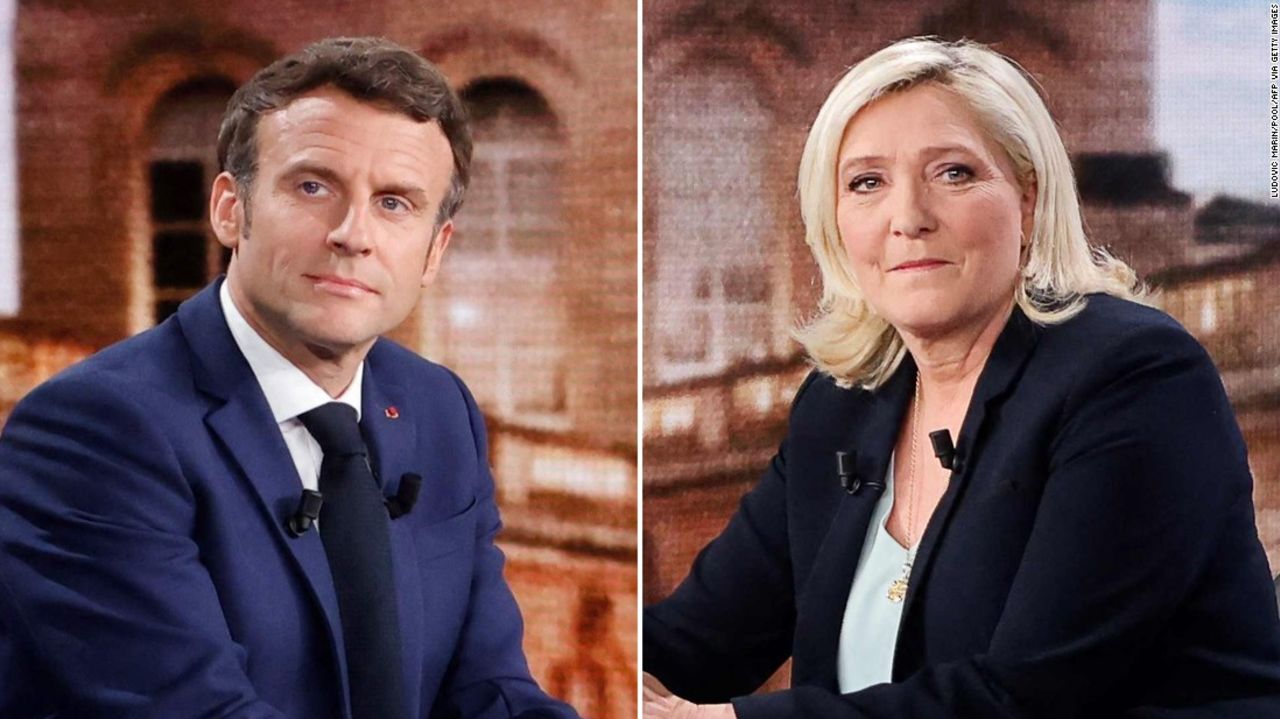National Rally candidate for upcoming 2nd round of French presidential election, Marine Le Pen holds her last meeting for the campaign for president on April 21, in Arras, France.
(Sylvain Lefevre/Getty Images)
Emmanuel Macron will serve a second term as the president of France – the first person to do so since 2002 – pollsters have projected.?
His victory over right-wing rival Marine Le Pen by a relatively comfortable margin of 58.8% to 41.2% will be met with a huge sigh of relief in the capital cities of France’s most prominent allies – most notably in Brussels, home of the European Union and NATO.?
Le Pen could almost be purpose built as someone leaders of the Western alliance would least like running a country as important as France.?
France is a member of NATO, the EU and the G7. It has a permanent seat on the United Nations Security Council and is a nuclear power. Yet despite its deep embedment in these pillars of the Western order, France also historically favors an autonomous foreign policy, meaning it can act as a broker between the US-led Western order and nations like Iran, China and Russia.?
Le Pen’s previous ties to Russia, unenthusiastic view of NATO and hostile view of the EU meant that her victory would have rattled cages around the world.?
However, if the projections are correct, the scale of Macron’s victory tonight will mean celebrations are cut short for many French allies. Far from Macron’s impressive 2017 victory, where he defeated Le Pen comfortably with 66% of the vote, that margin is now much smaller.?
For all that defeating the far-right for the second time is a great victory for Macron, France’s allies will be very awake to the fact that nearly 42% of French voters, according to the data, supported someone who stands against so much of what they are for.?
Nowhere will this be felt more acutely than among the leadership of NATO and the EU.?
For NATO, Russia’s invasion of Ukraine has been the first real test of the alliance’s unity in years. While eyebrows were raised at some of the decisions taken by Macron during the crisis, NATO has largely been on the same page.?
Based on Le Pen’s previous relationship with Putin and disdain for NATO, very few thought this wouldn’t create a problem not just in NATO, but also at the UN Security Council.?
When it comes to the EU, Macron has hardly been shy about his desire for Europe to become stronger and more united in terms of its security and foreign policy. His vision of European unity at times irritates many of his counterparts, who think he is trying to force through a French vision for Europe, though his commitment to the project cannot be questioned.?
Le Pen, on the other hand, is more dangerous than someone who wants France to leave the EU: she would be able to lead the group of Euroskeptics who want to take over the bloc from within.?
There are a significant number of these people already represented in the EU institutions. In the parliament, far-right parties are represented in a number of countries. Where things get messier is at the national level.?
There are EU member states, most notably Hungary and Poland, that are led by people whose view of the EU is very close to that of Le Pen. This was underscored last year when she joined numerous other right-wing leaders, including national leaders, in an open letter opposing many of the progressive ideas that have been proposed over the past decades by Brussels.?
For the traditional West, Macron’s second term is a moment of great relief, but also a moment of warning. If the far-right continues to make gains, there could be a very different outcome five years from now.






















